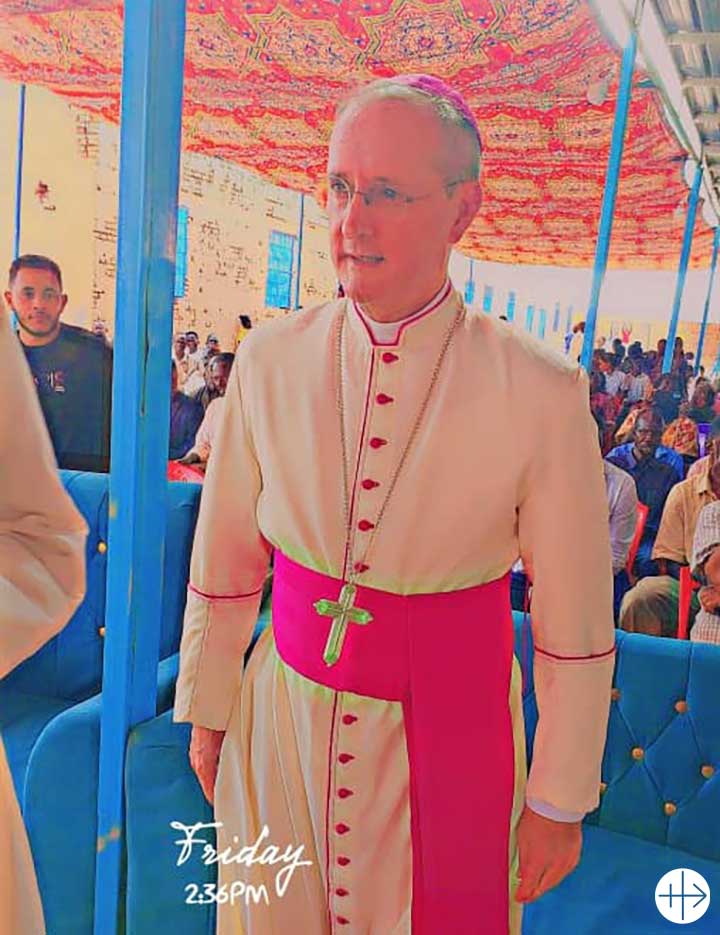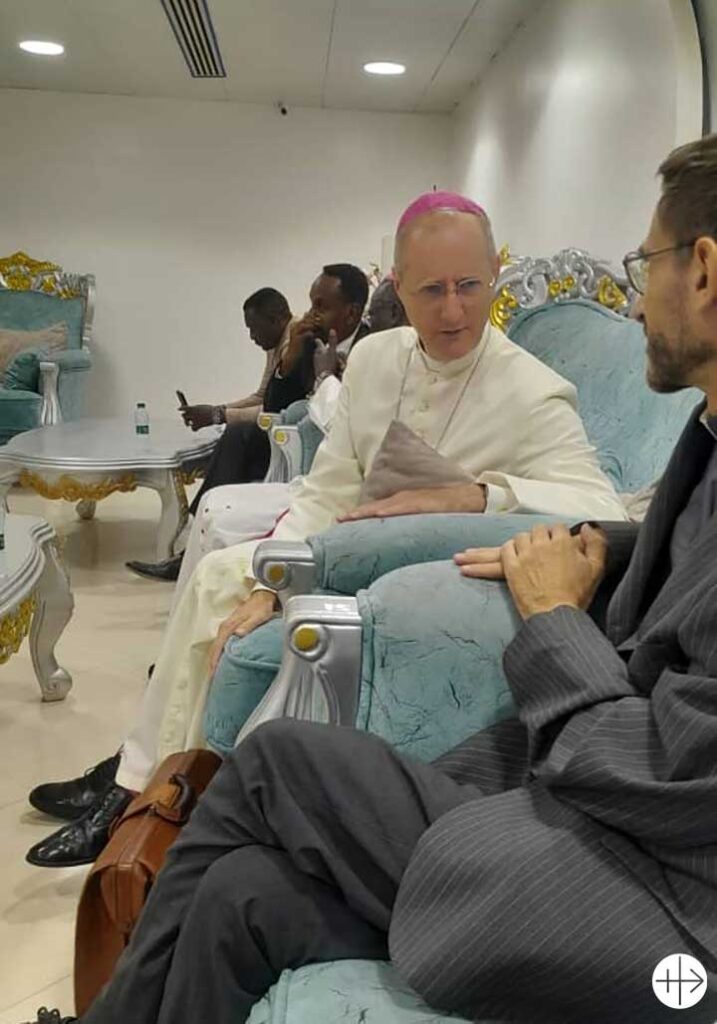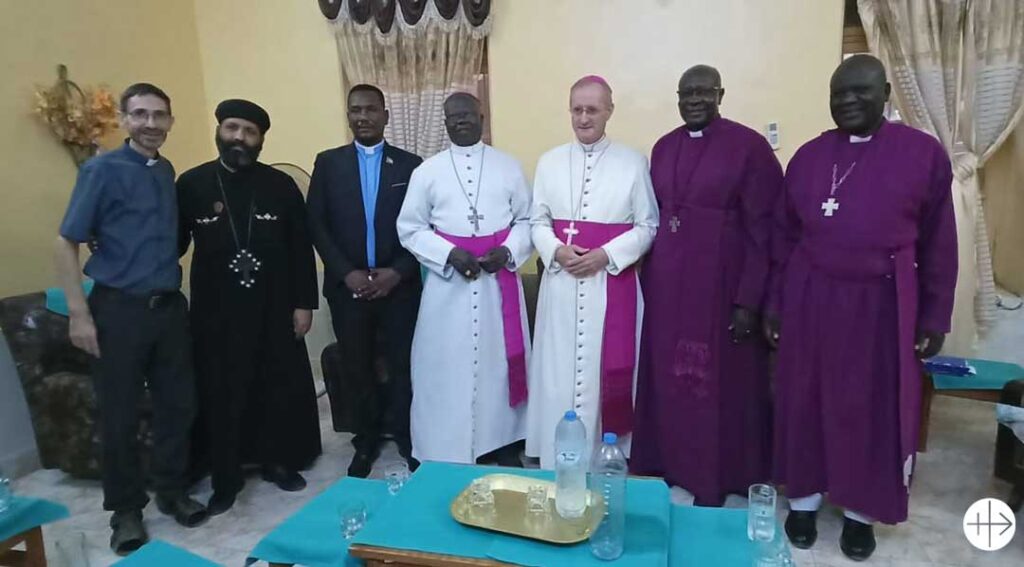Papal envoy carries solidarity to the Christians of war-torn Sudan
Archbishop Séamus Patrick Horgan, Apostolic Nuncio to South Sudan, has just completed a diplomatic mission through the region’s most badly affected by the current civil war in Sudan. Over several days, the archbishop expressed Pope Leo’s solidarity and closeness with the Christian community which continues to struggle to keep its faith in the midst of the conflict.

Speaking to Catholic charity Aid to the Church in Need (ACN), Fr Jorge Naranjo, a Spanish missionary with a long track record in the region, described the deep impact of this visit and provided a detailed description of the nuncio’s activities.
The ten-day trip, which combined pastoral support for Sudanese faithful and high-level diplomacy began on 11 September in Port Sudan and represented a symbolic effort by the Vatican in a country which has been devastated by a civil war since 2023, leading to the collapse of political and civil infrastructure.
“Catechists are true pillars of the Church”
Thanks to the aid of the Sudanese government, which eased the difficult logistics of travelling along damaged roads and past military checkpoints, Archbishop Horgan was able to visit the outlying areas of Khartoum, to which a large part of the population originally from the centre of the capital has been relocated. With the centre of the city now “devastated and empty”, masses of people have resettled in the surrounding areas such as Mayo, Haj Yousif, Jabarona and Masalma in Omdurman.
Khartoum has become the epicentre of the current conflict between the Sudanese Armed Forces (SAF) and the Rapid Support Forces (RSF). For months, much of the city was under siege. The nuncio, who celebrated Mass in several parishes in the capital, “was able to experience the difficult situation of the community, which has held on despite the presence of RSF militias in the area more than a year after the Sudanese army retook it,” Fr Naranjo explains. “The vast metropolitan area of Khartoum, which before the war had eight million inhabitants and 23 parishes, is currently served by only three priests – two diocesans and one Comboni missionary.”

“The pastoral vacuum has given the catechists a central role, it is they who keep the Faith alive through Sunday liturgies of the Word. They are the true pillars of the Church here,” says the Comboni missionary, who has also been displaced from the capital by the conflict and now resides in Port Sudan.
The archbishop also visited the Christian communities in Shendi, Omdurman and Atbara, a city on the bank of the Nile, to where Archbishop Michael Didi of Khartoum temporarily relocated when the war began.
Dialogue with the government and other Christian communities
In Port Sudan, where the nuncio ended his mission, Archbishop Horgan met with high-ranking politicians such as the Minister of Foreign Affairs, the Minister of Religious Affairs and the Director of Intelligence. Besides thanking the government for its role in the evacuation of the Salesian sisters who were stranded in the Al-Shajara neighbourhood of Khartoum for months, the Vatican diplomat stressed the importance of respecting the rights of the country’s Christian minority.
According to Fr Naranjo’s report, the apostolic nuncio to South Sudan “highlighted the importance of respecting the role of the Church and its legal standing in the new Constitution that is being prepared”, and specifically insisted on the need to uphold religious freedom.

Finally, Archbishop Horgan met with leaders of other Christian denominations, namely the Anglican and the Coptic Churches, and also with the Sudanese Council of Churches, which appealed to the Vatican to use its diplomatic sway to “continue working for peace”, and expressed their wish for a future Papal visit to Sudan.
“The nuncio’s visit carried a word of encouragement from the Pope to the Sudanese people and gave hope to the community in the midst of this conflict,” Fr Naranjo concluded.


